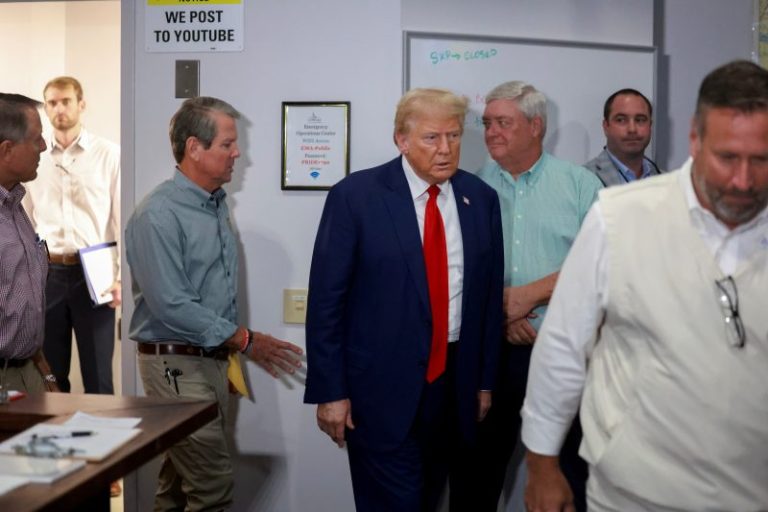In the wake of natural disasters, the dissemination of accurate information is crucial for coordinating effective response efforts and ensuring the safety and well-being of affected communities. However, there have been instances where misinformation has been spread, leading to confusion and hindering relief efforts. This issue has been particularly pronounced in the responses to natural disasters under the administration of former President Donald Trump.
One notable incident of misinformation peddled during a natural disaster response was observed in the aftermath of Hurricane Maria’s devastating impact on Puerto Rico in 2017. President Trump repeatedly downplayed the severity of the situation, claiming that the federal response was a success and accusing Puerto Rican officials of mismanaging aid funds. This misinformation not only undermined the gravity of the crisis but also created a false narrative that distorted public perception of the reality on the ground.
Another instance of misinformation emerged during the wildfires that ravaged California in recent years. President Trump made baseless claims suggesting that the fires were solely due to poor forest management practices, ignoring the role of climate change in exacerbating the frequency and intensity of wildfires. By spreading this misinformation, the administration failed to address the root causes of the crisis and neglected to implement strategic measures to prevent future disasters.
Furthermore, throughout his tenure, President Trump has frequently used social media platforms to disseminate inaccurate information and conspiracy theories about natural disasters, such as hurricanes and wildfires. These actions have not only misled the public but have also eroded trust in authoritative sources of information, making it challenging for individuals to discern fact from fiction during times of crisis.
The spread of misinformation in natural disaster responses is not only a matter of public safety but also a question of ethical leadership and governance. When leaders propagate falsehoods instead of relying on verified data and expert knowledge, they jeopardize the effectiveness of response efforts and put lives at risk. It is essential for policymakers to prioritize transparency, honesty, and accountability in their communication during natural disasters to foster trust and facilitate a coordinated and efficient response.
In conclusion, the proliferation of misinformation in natural disaster responses, as observed during the administration of former President Donald Trump, underscores the importance of responsible leadership and communication in times of crisis. By prioritizing factual information, engaging with experts, and ensuring transparency, policymakers can better equip communities to weather the impacts of disasters and build resilience against future threats. It is imperative that we learn from past mistakes and strive to cultivate a culture of truth and accuracy in disaster management to safeguard the well-being of all individuals.



